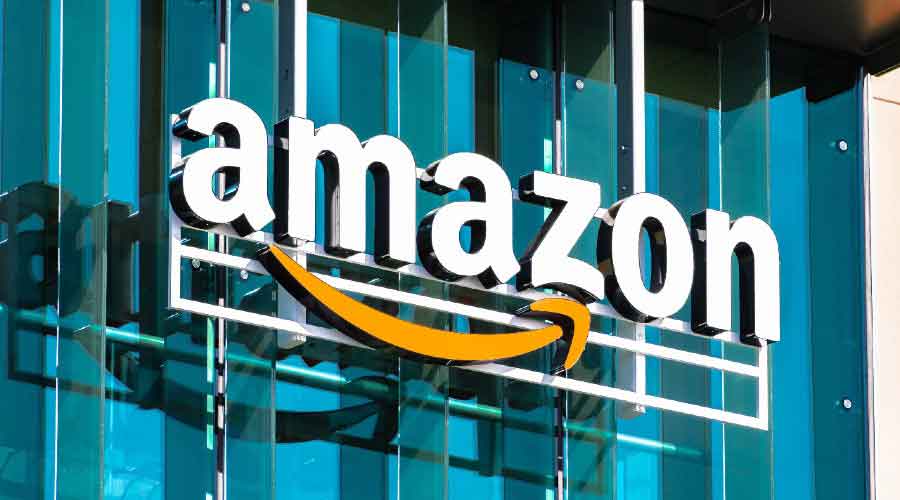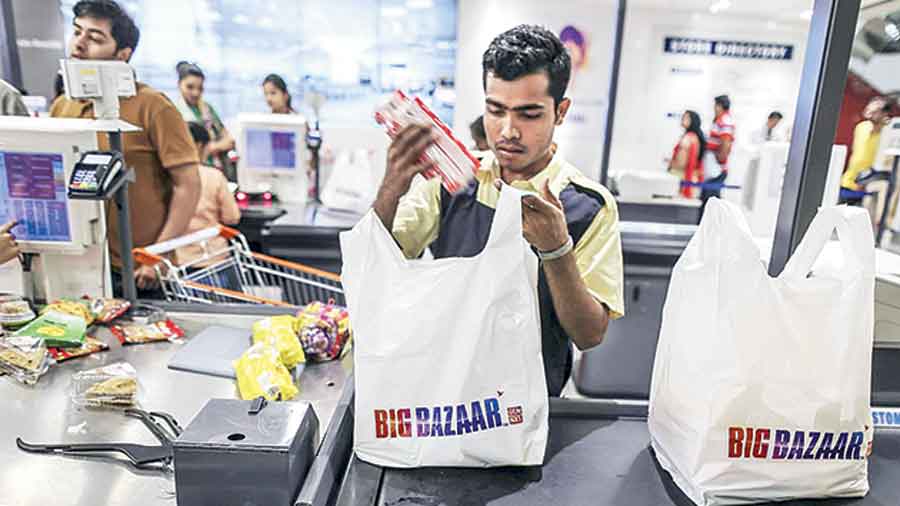About the only thing anyone can agree on is that it’s one big mess. The off-again-on-again $3.2-billion deal by Mukesh Ambani’s Reliance to buy the Kishore Biyani-led Future Group is off again. Now, bankruptcy court could be the next stop for Future Group, the country’s second largest retailer with more than 1,700 store outlets that is drowning in debt.
Future Group’s secured creditors have voted against a Rs 24,713-crore deal for Reliance Group to purchase the company’s retail assets and so the agreement “cannot be implemented,” Reliance said in a regulatory statement this weekend that has capped 21-months of court battles.
The retailer has been at the forefront of a bruising legal fight between Ambani, the petrochemicals to telecoms tycoon, and Jeff Bezos’s Amazon Inc which has been arguing it had the first right of refusal to buy Future’s retail holdings. The world’s biggest e-commerce company has set its sights on making big inroads in India.
While the takeover agreement appears to be dead in the water, the Reliance conglomerate may still come out ahead as it has already taken over physical control of 200 Big Bazaar Stores by assuming responsibility for the leases. Reliance is in the process of assuming control of the leases of more than 900 more Future outlets. It has also hired many of the Future Group employees.
“It looks like Reliance is still going to get its (Future retail) cake and eat it too,” said one retail analyst who did not wish to be identified. With the secured creditors’ rejection of the takeover agreement, Future Group now faces a plea by public sector lender Bank of India, one of the secured creditors that voted against the deal, asking the National Company Law Tribunal to initiate insolvency proceedings and the declaration of a moratorium over the assets.
Back in August 2020, Future Group, founded by Biyani who serves as chief executive, announced the plan to sell 18 companies operating in retail, wholesale, logistics and warehousing to Reliance Retail Ventures Ltd known as RRVL to pay back creditors.

For Amazon, the addition of Future’s stores would help it expand its bricks-and-mortar presence across India File Picture
The announcement triggered an ugly whirlpool of legal disputes fought on multiple fronts for control of the country’s $900-billion retail sector between Reliance Group and Future Group’s partner, US e-commerce giant Amazon, which has been seeking a way to cement its retail path in India.
Amazon, which has sunk $200 million into Future Group, alleged in a series of court battles that Reliance’s planned purchase of the retail assets of Future Group violated contract agreements, specifically one that gave it first right of refusal to buy into Future’s retail assets.
For Amazon, the addition of Future’s stores would help it expand its bricks-and-mortar presence across India. While Reliance Retail already has 11,000 retail stores, it’s happy to grow its food and grocery stores at the same time as bat back Bezos’s India ambitions.
Reliance said in its regulatory statement that while shareholders and unsecured creditors of Future Group had approved the scheme in a vote, the secured creditors that included the State Bank of India, Bank of India and Union Bank of India, voted against the deal. “In view thereof, the subject scheme of arrangement cannot be implemented,” Reliance said.
The secured creditors of Future Group's three flagship companies—Future Retail, Future Lifestyle and Future Enterprises — turned down the plan that would have merged Future’s retail assets with Ambani's retail operations. The Future Group has said that over Rs 12,700 crore debt on Future Retail’s books would be transferred to Reliance under the deal. But the secured creditors were not convinced that the money would be repaid under the takeover agreement.
Future Group owes in total around Rs 20,000 crore to its secured creditors including banks and around Rs 8,000 crore to its unsecured creditors and vendors.
Amazon had won a series of legal injunctions blocking Future's deal to sell its wholesale, warehousing, logistics and other retail assets to Reliance. A Singapore arbitration panel and Indian courts have backed the e-commerce group’s claims. But Indian stock exchanges cleared Future’s deal with Reliance.
Biyani, who used to be known as India’s Retail King, started out in retail in the 1980s and his operations grew and grew. But then, his breakneck expansion got him into deep financial trouble as he became overextended. The pandemic, nationwide Covid-19 lockdown and state-level curbs added to the financial pain.
Amazon offered to settle the row through negotiation but the talks got nowhere. Last month, the e-commerce giant took out full-page newspaper ads accusing Reliance Retail and Future Retail of “fraud.” Future Group rejected Amazon’s claims. The e-commerce company warned Reliance that any move to transfer Future's assets to the company would spark legal action against Ambni’s company.
Reliance has been taking control of the leases of Future Group’s more than 1,700 stores, saying the rents were going unpaid. Reliance said it was forced to act “beyond expectations” because of the mounting dues and it needed to safeguard the future of the retail assets. Analysts say that many of the remaining stores for which Reliance hasn’t so far sought to assume control are non-operational and have no value for creditors. Reliance said it had taken “significant steps,” including financial support of Rs 4,800 crore, to ensure Future’s retail assets remained viable and to make sure there was “no impediment” to the purchase proceeding.
Reliance said it has assured the 36,000 employees of Future Retail that they would be able to keep their jobs under the purchase deal. Reliance also said it was supplying much of the inventory to the stores as Future couldn’t pay its suppliers and they were refusing to provide more stock.
Future responded by saying Reliance had “unilaterally terminated the leases and forcefully taken over control of hundreds of Future Retail’s stores.”
The swoop by Reliance on Future’s retail assets meant even if Amazon ultimately was successful legally, it might have far fewer shops to take over, analysts said.
Future Group owes a total of Rs 20,000 crore to its secured creditors and some Rs 8,000 crore to unsecured creditors and vendors. But as its financial woes have grown, it has been defaulting on repayments.
At times, the legal fight has reached fever pitch. At one point, Amazon demanded that Biyani be held in a civil prison for allegedly disobeying a legal order. Meanwhile, Biyani’s group called the dispute a battle for “supremacy over Indian customers.” It’s accused Amazon of “playing the dog in the manger.” It also compared Amazon to Alexander the Great and his “ruthless ambition to scorch the earth” but noted that he “failed in India.”
Bezos now can continue his legal fight against the takeover but even if he wins, the victory could turn out to be hollow, analysts say.











